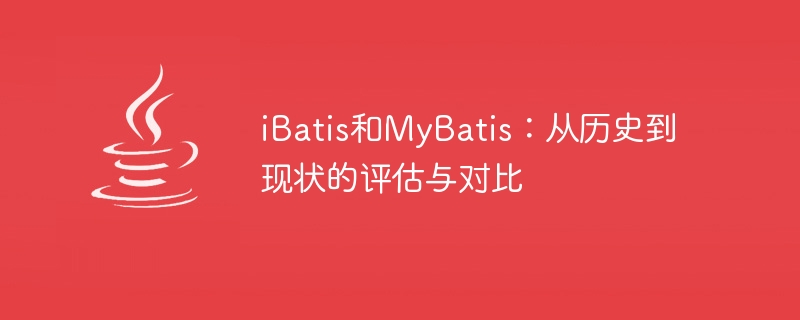

iBatis and MyBatis: Evaluation and Comparison from History to Current Status
Introduction:
With the rapid development of the software development field, database access frameworks have also been proposed. meet increasingly higher requirements. iBatis and MyBatis are two Java persistence layer frameworks that have attracted much attention. They both provide a simple and flexible way to access relational databases. This article will provide a historical review of these two frameworks and evaluate and compare their current status.
1. Historical review
2. Evaluation and comparison
The following is a code example using MyBatis:
public interface UserMapper {
@Select("SELECT * FROM user WHERE id = #{id}")
User getUserById(int id);
}The following is a code example using iBatis:
<select id="getUserById" resultType="User">
SELECT * FROM user WHERE id = #{id}
</select>Conclusion:
To sum up, iBatis and MyBatis are both excellent Java persistence layer frameworks. They perform well in terms of performance, flexibility and ease of use. However, MyBatis, as the successor of iBatis, has better performance in terms of functionality and scalability. Therefore, for new projects, it is recommended to choose MyBatis.
References:
The above is the detailed content of iBatis and MyBatis: Comparative evaluation of history and current situation. For more information, please follow other related articles on the PHP Chinese website!
 ibatis
ibatis
 mybatis first level cache and second level cache
mybatis first level cache and second level cache
 SQL statement to backup database
SQL statement to backup database
 What is the difference between ibatis and mybatis
What is the difference between ibatis and mybatis
 How to configure database connection in mybatis
How to configure database connection in mybatis
 What is the working principle and process of mybatis
What is the working principle and process of mybatis
 What are the differences between hibernate and mybatis
What are the differences between hibernate and mybatis
 How to use split in python
How to use split in python




